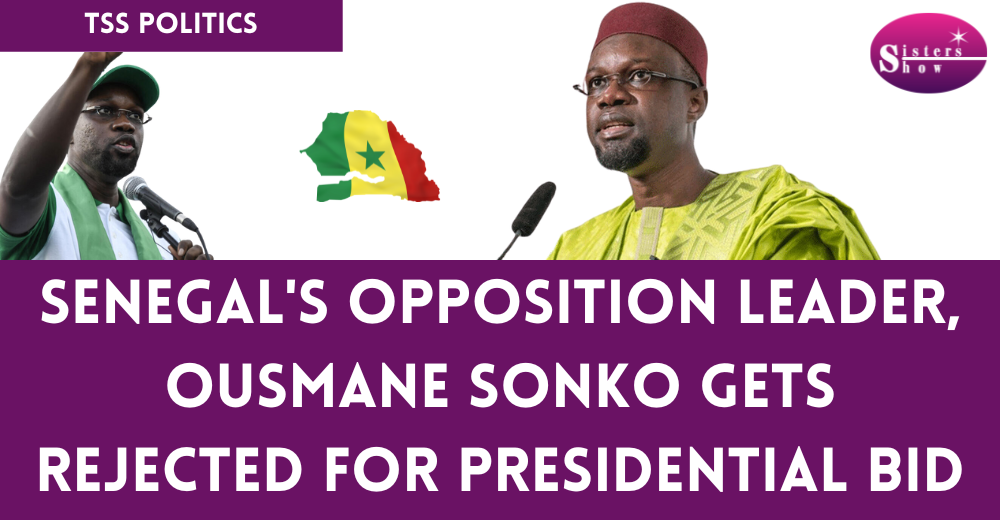
Senegal’s prominent opposition leader, Ousmane Sonko, encountered significant setbacks in his pursuit of contesting the presidency as the top court upheld his defamation conviction, and the Constitutional Council rejected his incomplete application to be a presidential candidate.
The rejection of Sonko’s candidacy was based on its incomplete nature, and his lawyer, Cir�� Cledor Ly, highlighted a violation of the law as the application was examined without Sonko’s representative present. Ly expressed concerns about the government’s apparent intent to invalidate Sonko’s candidacy from the outset.
These decisions followed the Supreme Court’s rejection of Sonko’s appeal against a defamation conviction, adding another layer to his protracted legal battle. The opposition leader contends that these legal challenges are orchestrated to hinder his presidential aspirations in the upcoming February elections.
���The trial was the very last chance,��� said Sonko���s lawyer, Khoureychi Ba, at of the ruling, which effectively eliminates Sonko from the presidential race. Sonko, who secured the third position in the 2019 presidential election, is viewed as the primary challenger to President Macky Sall’s ruling party.
Despite President Sall’s decision not to seek a third term after months of protests initiated by Sonko’s supporters, the opposition leader faces further legal complications. Currently imprisoned on a separate charge, Sonko will continue serving a six-month suspended prison sentence from the defamation conviction last year.
El-Hadji Diouf, representing the minister who filed the defamation suit against Sonko, celebrated the ruling as a significant victory, upholding the suspended prison sentence and marking a pivotal moment in the ongoing legal saga.
Sonko’s presidential bid, marred by legal challenges since accusations of rape in 2021, has navigated through acquittal, imprisonment for corrupting youth, and the dissolution of his political party. Despite overcoming obstacles in December, Sonko now grapples with the recent setbacks, leaving the announcement of eligible candidates in January and the ensuing campaign season with heightened anticipation.




